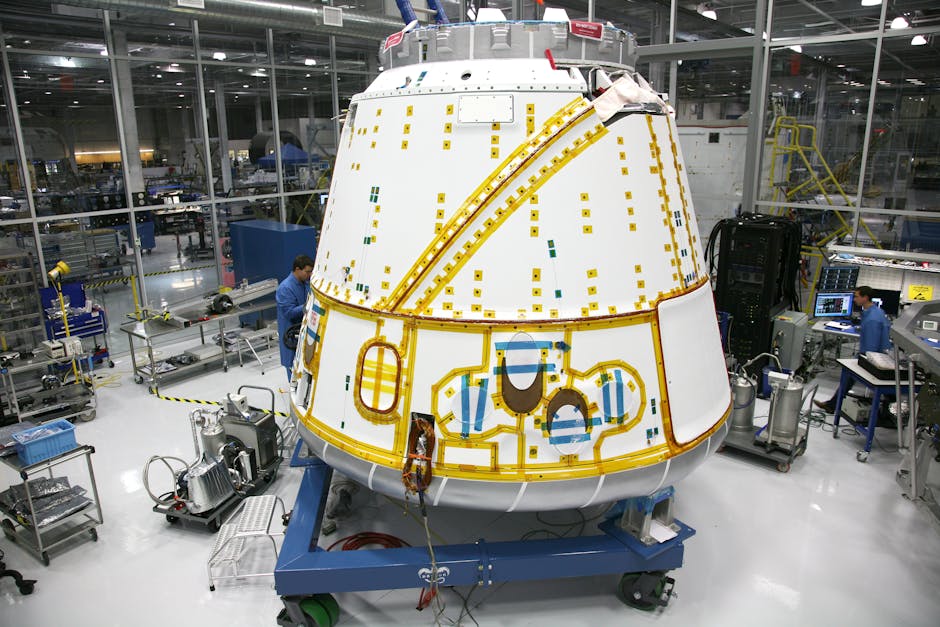The New Lifeblood Of Newcastle Businesses: Modernising Cobol Applications
Like a phoenix rising from the ashes, the classic programing language COBOL is getting a new lease on life in Newcastle’s bustling business scene. You might think it’s an outdated relic, but don’t be fooled! With savvy updates and modernisation, COBOL is proving to be the powerhouse behind many successful operations.
The process of updating these systems isn’t just about slapping on a fresh coat of paint—it’s about reworking and enhancing them to meet today’s complex business needs while retaining their valuable core functionalities.
This piece will delve into the importance of COBOL in contemporary businesses, shedding light on how its modernisation has been pivotal in driving success stories across Newcastle. By taking you through case studies and hinting at what future holds for this timeless language in business operations, we aim to give you a comprehensive understanding of why COBOL remains crucial even in our rapidly advancing tech landscape.
Key Takeaways
- COBOL is being revived and modernised in Newcastle’s business scene.
- Modernising COBOL involves enhancing existing systems while retaining core functionalities.
- COBOL’s simplicity, readability, and ability to handle vast amounts of data efficiently make it relevant in today’s data-driven era.
- Modernising COBOL applications involves integrating them with newer technologies like cloud computing and artificial intelligence.
Reviving a Classic Programing Language

It’s fascinating to see how Newcastle businesses are reviving COBOL, a classic programing language, and modernising it to meet today’s tech-driven needs. While many would consider COBOL as old-fashioned, its resurgence is undeniable in the business world of Newcastle.
In fact, many enterprises are finding that the language versatility of COBOL lends itself well to updating applications for contemporary use. COBOL has proven its worth over time due to its simplicity and readability. It was originally designed for business data processing needs and is still relevant today because it can handle vast amounts of data efficiently. Its resurgence isn’t just about nostalgia; it’s about acknowledging the lasting value this programing language brings in an era where data management is critical.
Modernising COBOL applications doesn’t mean rewriting them from scratch either. Rather, it involves enhancing existing systems by integrating them with newer technologies such as cloud computing or artificial intelligence capabilities. This process requires a deep understanding of both the legacy system and emerging trends in technology.
The beauty lies in not just maintaining these applications but transforming them into something better equipped for current demands while preserving their fundamental principles. With this approach, businesses can leverage their established infrastructure without getting left behind in the digital revolution.
Language versatility comes into play when modernising these applications because changes need to be made without disrupting the core functionality or integrity of the system. After all, these systems often run key aspects of a business’s operations – they can’t afford any hiccups during transition.
As we move forward with this discussion on revitalising old programing languages like COBOL, let us delve deeper into understanding its relevance and importance in contemporary business scenarios next.
The Importance of COBOL in Contemporary Business

Despite its vintage status, this trusty old programing language remains a critical cog in the well-oiled machine that is today’s global economy. COBOL’s versatility allows it to be used across various business sectors such as banking, insurance, and retail – handling large volumes of data with ease.
To illustrate further, let’s look at this table:
| Sectors | Uses of COBOL |
|---|---|
| Banking | Transaction processing, account management |
| Insurance | Policy administration, claims processing |
| Retail | Inventory management, sales tracking |
These use cases highlight COBOL’s strength: Legacy Integration. This entails blending new technologies seamlessly with existing systems which are often written in COBOL.
You might’ve heard naysayers decry the ‘antiquated’ nature of COBOL applications; however, seasoned programers understand that one shouldn’t fix something if it isn’t broken. Instead of replacing these legacy systems entirely—an expensive and risky venture—modernising them is a more feasible approach.
Modernisation can take several forms like re-platforming (moving to another operating system), re-hosting (transitioning to cloud-based platforms), or code refactoring (improving non-functional attributes). Regardless of form, the goal remains constant: improve efficiency while maintaining functionality.
COBOL has proven itself over time as a reliable workhorse capable of evolving alongside technological advancements. It’s essential for businesses in Newcastle and beyond to recognise this value and invest in modernising their COBOL applications instead of discarding them outright.
The journey towards updating these legacy systems isn’t necessarily straightforward nor simple but investing time and resources into it could reap immense benefits for your enterprize. Let’s delve deeper into how you might navigate through these updates without losing sight of your operational goals.
The Process of Updating COBOL Systems

Navigating the labyrinth of legacy system updates can be a Herculean task, yet it’s worth your while as it could catapult your enterprize into a realm of improved efficiency and productivity.
There are many ways to approach COBOL Conversion, but here we’ll focus on two main aspects: Legacy Integration and Code Refactoring.
Legacy Integration involves connecting your existing COBOL systems with modern technology. This doesn’t mean wiping out all the old code; instead, you’re creating bridges between new and old systems using APIs or middleware. It’s akin to fitting an antique engine with modern parts – keeping what works, improving what doesn’t.
Code Refactoring is another essential part of updating COBOL Systems. This process involves revising and cleaning up existing code without changing its fundamental behaviour. The goal is to make the code more efficient, easier to understand, less complex, and better adaptable for future changes.
To successfully navigate this treacherous path, you need tools like automated refactoring software that can help identify redundancies in your COBOL codebase or areas where modernisation is needed. Tools that provide detailed reporting on how well the refactored application performs compared to its original version.
COBOL conversion may seem intimidating at first glance, but it’s important not just for maintaining compliance with ever-evolving regulations but also for ensuring business continuity in today’s digital era.
Let’s now turn our attention towards real-world examples where businesses have embraced the challenge head-on and reaped significant benefits from their efforts in successful COBOL modernisation journeys.
Case Studies of Successful COBOL Modernisation

You’ve heard about the process, now let’s delve into some success stories where organisations have made significant strides in updating their legacy systems.
Take note of how these companies overcame modernisation challenges and embarked on a journey towards legacy transformation.
-
First off, we have a multinational bank that decided to modernise their COBOL applications by adopting cloud-based technologies. They faced numerous challenges from ensuring data security to user-acceptance testing. However, they managed to successfully update their system with minimal downtime and improved performance.
-
Next up is an insurance firm that utilised automated tools for refactoring their COBOL codebase. This not only reduced costs but also sped up the overall process of transitioning from legacy COBOL to more contemporary languages like Java.
-
Another case is a healthcare company which opted for an incremental approach towards modernising their COBOL systems. They redeveloped parts of the system one at a time, mitigating risks while also managing regular operations smoothly.
-
Lastly, there’s a retail giant who replaced their ageing mainframe with microservices architecture, improving scalability and agility in response to market demands.
These examples demonstrate how different strategies can lead to successful outcomes based on unique business needs and constraints.
The common thread amongst all these stories is the careful planning and execution involved in tackling such daunting tasks as moving away from reliable yet outdated technology like COBOL. It’s clear that understanding your organisation’s specific requirements plays a pivotal role in determining your path forward during this transformative journey.
As you can see, modernising COBOL isn’t simply about upgrading old systems – it’s about creating more efficient business processes fit for today’s technological landscape.
Now then, let us move forward into discussing ‘the future of COBOL in business operations’.
The Future of COBOL in Business Operations

In the realm of business operations, it’s interesting to note that over 70% of global transaction processing systems still run on legacy languages such as COBOL. This is not a coincidence but a testament to COBOL’s longevity and adaptability. The language has proven its mettle time and again, displaying remarkable resilience in an ever-changing technological landscape.
Let’s take a moment to consider COBOL’s future role in business operations:
| Factor | Current Status | Future Outlook |
|---|---|---|
| COBOL Applications | Still widely used in banking, finance, insurance sectors | Will continue to be relevant due to cost-effectiveness of modernisation |
| Workforce Skillset | Shortage of young professionals fluent in COBOL | Increasing demand for skills transfer from older generations will revive interest |
| Modernisation Efforts | Initiatives underway across numerous industries | To continue with more businesses adapting their legacy systems |
The table above evokes an undeniable reality: despite newer programing languages emerging, COBOL remains intrenched in key sectors and cannot be easily replaced.
Many sceptics question why businesses don’t simply migrate all their applications from the old language. However, one must understand that these are systems intricately woven into the fabric of major corporations over decades; they can’t just be ripped out and replaced without causing significant disruption.
The real issue isn’t whether or not COBOL will survive; it’s how businesses can effectively modernise their existing applications without breaking them. Businesses need strategies that maintain system stability while reducing costs and increasing agility — this is where modernising comes into play.
So remember, don’t underestimate the power of old tech like COBOL. It might just surprise you with its tenacity and continued relevance in tomorrow’s digital world.
Frequently Asked Questions
What is the estimated cost of modernising a COBOL application for a small business in Newcastle?
The cost for modernising your small business’s COBOL application varies. It’s influenced by factors like complexity and size, but outsourcing COBOL modernisation can bring benefits, reducing costs while improving system efficiency and flexibility.
Are there any special training programmes available in Newcastle for programers to learn the modernised version of COBOL?
Indeed, Newcastle offers online COBOL courses for programers eager to modernise their skills. COBOL Certification benefits include proficiency in the updated language and an enhanced ability to modernise legacy systems confidently.
What are the potential risks and challenges Newcastle businesses might encounter during the COBOL modernisation process?
In modernising COBOL applications, you might face pitfalls like high costs, risk of data loss, and challenges in legacy system integration. Ensuring compatibility with existing infrastructure can be complex and time-consuming.
Can you provide some examples of businesses outside of Newcastle that have successfully modernised their COBOL applications?
‘Every cloud has a silver lining,’ as seen in COBOL modernisation strategies. International success stories include IBM and Micro Focus, both expertly modernising their legacy systems with proficiency in COBOL language.
How does the future of COBOL in business operations impact the job market for COBOL programers in Newcastle?
As COBOL’s sustainability in business operations continues, the job market for COBOL programers in Newcastle is likely to grow. However, outsourcing prospects may pose challenges, so it’s crucial to stay adept in modernising legacy systems.
Conclusion
So, you’re tuning up your business with COBOL, the old warhorse of programing languages. Don’t be fooled by its long-in-the-tooth reputation. There’s life in this classic yet!
With a bit of tinkering and modernising, it can still deliver a knockout punch to today’s business operations. Keep on strumming that COBOL guitar—it’s not out of tune yet; it’s just playing a different melody!
Contact us to discuss our services now!